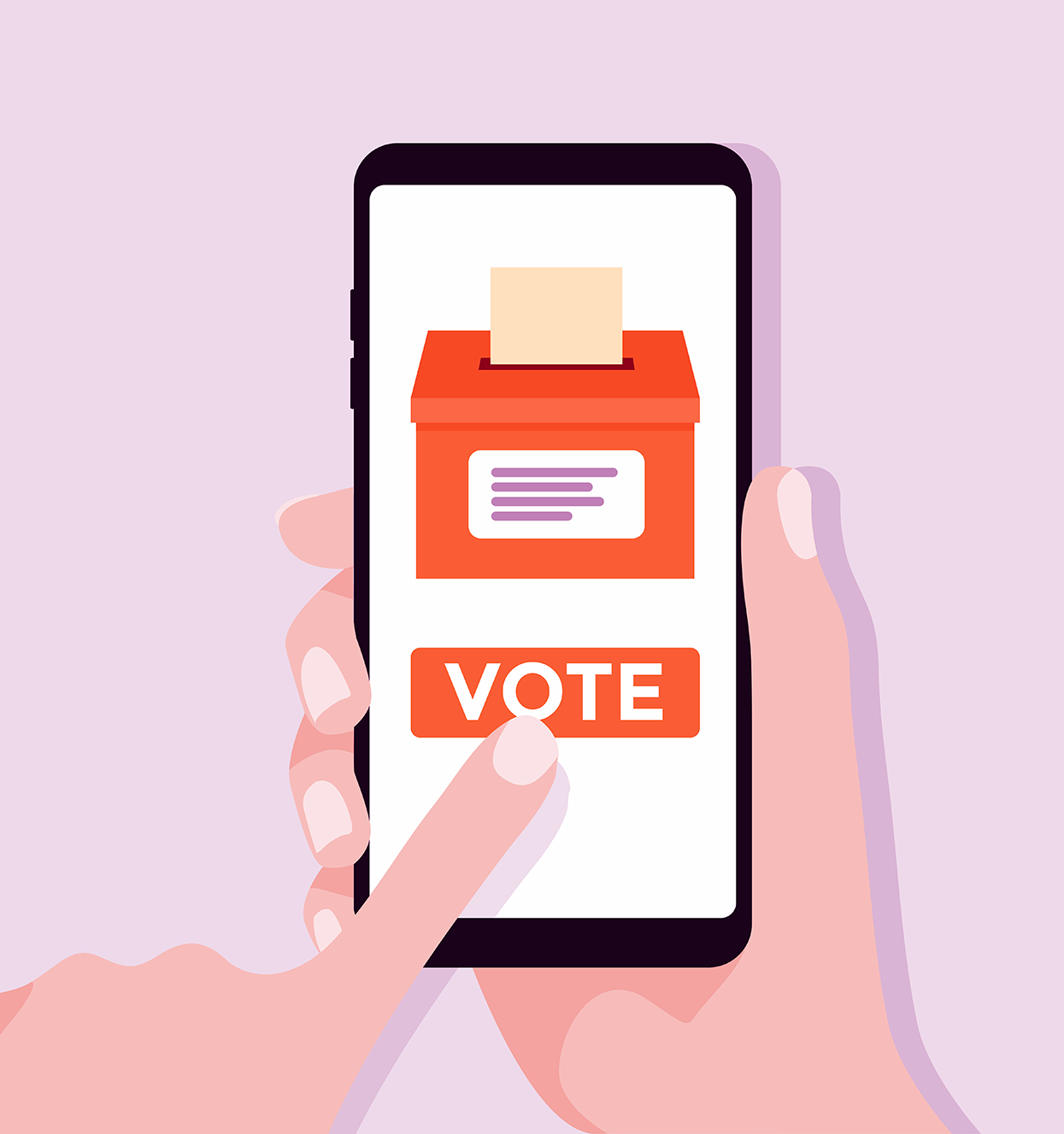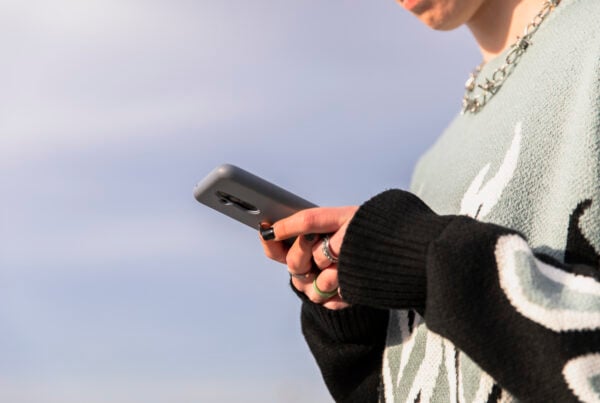Find out the week’s top mobile stories from around the world.
This week.. Samsung unveils foldable phone, US voting using mobile blockchain app, Russia tightens control of anonymous messenger apps and much more.

Samsung unveils foldable phone as it tries to regain edge on Apple
Guardian
Samsung has unveiled its much-anticipated foldable phone and urged Android developers to start writing apps for the new device.
The South Korean tech company needs to perfect the foldable phone to reverse steep declines in profit for its mobile division and restore some of the cachet its brand has lost to Apple.
Foldable phones promise the screen of a small tablet in a pocket-sized device.
At the unveiling in San francisco, Justin Denison, a senior vice president of mobile product marketing, showed a prototype with a screen he said measured 18.5cm (7.3in) diagonally.
Read more…
West Virginia says 144 people voted using mobile blockchain app
State Scoop
Nearly 150 West Virginians living outside the United States cast ballots in Tuesday’s election using a blockchain-backed mobile app that West Virginia officials have touted as an ideal way to boost participation but has also attracted scrutiny from election observers.
The office of Secretary of State Mac Warner said that 144 voters — many of them active-duty members of the U.S. military deployed overseas — used the Voatz app to make their choices for in races for the U.S. Senate, the House of Representatives and state and local offices.
Votes cast on the app came in from 30 countries, including active combat theaters like Afghanistan, Warner’s office said. The app’s users hail from the 24 of West Virginia’s 55 counties that participated in the mobile-voting project, which was first tested by two counties during the state’s primary election in May.
Read more…
Verizon to launch new messaging service in February, Twilio executives say
Fierce Wireless
Verizon will launch a new messaging service that will change how the operator handles application-to-person messaging.
Details of the action remain vague, but executives at application development company Twilio discussed the pending change during their company’s quarterly conference call with investors.
“We continue to see things that could impact our gross margins like product, country and customer mix, network service provider fees, FX and more. An example of this is an expected change in Q1 2019 in our SMS messaging business through Verizon in the U.S.,” said Lee Kirkpatrick, Twilio’s CFO, according to a Seeking Alpha transcript of his remarks.
Read more…
Russia tightens control of anonymous messenger apps
AJC
Tightening its control over popular anonymous chat apps, the Russian government has approved regulations that would identify users by their cellphone numbers.
The measures signed Tuesday by Prime Minister Dmitry Medvedev are part of Russia’s moves to clamp down on smartphone messenger services, such as Telegram, that authorities claim are used by criminals and terrorists.
Mobile phone network operators will be required to confirm the authenticity of a user’s phone numbers within 20 minutes. If a number cannot be verified, messenger services are required to block users from their platforms.
Read more…
Boom! Just like that the eSIM market emerges – and jolly useful it is too
The Register
Well, that didn’t take long. Owners of new iPhones can now download an app and stick some data and minutes on the second SIM that Apple has thoughtfully included, allowing cheap calls and roaming data that your main SIM provider might not include.
The UK’s veteran virtual SIM pioneer Truphone was the first to break cover, providing an app to manage the eSIM. For now, Truphone is focusing on data rather than voice minutes, although calling will come – so it envisages the second SIM slot being used by travellers for roaming.
The international data plans allow flat rate roaming in 80 countries (but not China) using pre-purchased data plans. The advantage is that you don’t have to scramble around to get a local SIM when you land at your destination – it’s already active.
Read more…
Three claims 5G will end fixed-line home broadband
IT Pro
Dave Dyson, who has been at the helm of the mobile giant since 2011, said there would be enough capacity on 5G to cope with demand and result in households saving money by ending their fixed-line contracts.
Speaking to the BBC, Dyson predicted that customers will use 13 times as much mobile data in 2025 as they do today.
“Maybe not for the whole country, but certainly a significant majority of the country, I strongly believe 5G can offer a good enough home broadband experience for people to effectively ditch their copper or fibre connection,” said Dyson.
Read more…
Africa’s dominant mobile money service is going global
Quartz
Kenya’s biggest mobile money service M-Pesa is going global in a dealwith Western Union that would allow users to send money all over the world.
M-Pesa’s over 23 million active subscribers in Kenya will also be able to send and receive money through their phones and be connected to WU’s 500,000 global agents. Safaricom, which runs M-Pesa, said transfers through bank accounts to Germany, the United Arab Emirates, and the United Kingdom will also be available, with services to bank accounts in other countries being rolled out in the coming weeks.
Started 11 years ago as a platform for texting small payments between users, M-Pesa has grown into a service with subscribers in 10 nations across Africa, Europe, and Asia. In Kenya alone, it has 160,000 agents and did over 580 million transactions in the three months ending June 2018, according to the Communications Authority of Kenya.
Read more…
Private 5G networks are coming
Network World
The Industrial Internet of Things (IoT) will drive adoption of private 5G networks, some are saying.
In fact, automakers BMW; Daimler, which makes Mercedes vehicles; and Volkswagen have told the German spectrum manager BNA (Federal Network Agency) that they are “interested in operating local 5G networks,” Markus Fasse and Stephan Scheuer wrote in a recent Handelsblatt Global article.
Separately, network equipment vendor Qualcomm says it’s working on 5G NR technologies for private, industrial IoT networks.
Read more…
How Apple is losing its grip on India
Business Line
Software engineer Samee Alam was ready to take the big leap and buy an iPhone in this week’s Diwali festival sales, but at the last minute he opted for cheaper Chinese competitor OnePlus instead.
Alam, 27, spends hours on his phone watching shows, surfing and shopping, making him the perfect target for Apple Inc as it strives to raise sales among India’s 1.3 billion consumers.
But in a country where the average per capita income is around $2,000 a year, even the cheapest of this year’s new iPhones, the XR at 76,900 rupees ($1,058), costs twice as much as many of the alternatives.
Read more…
Deutsche Bank launches standalone mobile wallet
Finextra
Deutsche Bank has set up a subsidiary “startup” called Yunar, which will gradually build out a mobile wallet offering a host of services, beginning with loyalty scheme management.
The Yunar brand is a wholly-owned Deutsche Bank subsidiary with its own management, IT, a staff of 80 people, and, subject to approval, a ZAG licence enabling it to offer payment services.
The free app launched this week, initially focusing on making loyalty schemes easy to use, with customers able to collect points from up to 200 providers widely used in Germany
However, Deutsche says that Yunar will be continually upgraded with new banking and non-banking services, functions and products – such as mobile payments, multibank aggregation and digital ID – until it becomes “the mobile wallet in the customer’s pocket”.














